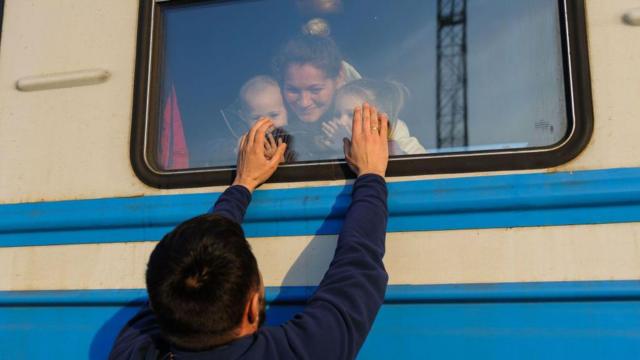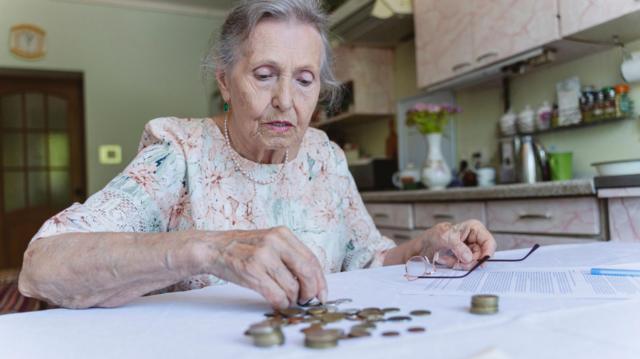From March, a significantly smaller number of internally displaced persons will receive support from the state. The focus will be on the most vulnerable and underprivileged categories. Instead, pensioners will receive a small increase in pensions due to indexation and an increase in the minimum wage.
In addition, the focus will be on new financial tranches from allies, the Polish border blockade and the start of the 2024 accession campaign.
Payments for IDPs
From March 1, new payment rules for internally displaced persons (IDPs) come into force in Ukraine.
Now the most vulnerable categories of the population will have the right to them. The government explained this by the economy and the pressure of Western partners, who finance the deficit of the Ukrainian budget.
"The most vulnerable should continue to receive payments, and those who have already, for example, adapted, received housing, or have a high-paying job... approaches should be fairer," explained the Minister of Reintegration of the Temporarily Occupied Territories, Iryna Vereshchuk.
According to her data, there are approximately 4.9 million people in Ukraine who are considered internally displaced. Of these, 2.5 million receive monthly payments.

PHOTO BY GETTY IMAGES
It is planned that in 2024 money for assistance to IDPs will amount to 57 billion hryvnias, which is 15 billion less than in 2023.
What will change?
Certain categories of IDPs will lose the right to payments from the state. Including:
- Pensioners who receive a monthly pension of more than 9,444 hryvnias
- Immigrants whose average monthly income per family member exceeds 9,444 hryvnias
- Families who have their own home or car, foreign currency, a large bank deposit (over 100,000 hryvnias) in an unoccupied territory and not in a war zone.
The following will be able to receive assistance automatically during the next six months:
- Pensioners whose pension amount is less than UAH 9,444
- People with disabilities of group I or II, children with disabilities under 18 years of age and seriously ill children
- Orphans and children deprived of parental care up to the age of 23, as well as foster parents and adoptive parents.
Other categories will have to reapply for benefits from March 1. The following categories will have the right to this:
- Children who arrived in a new community unaccompanied by a legal representative
- Pregnant women after the 30th week of pregnancy
- People who have lost their ability to work and do not have the right to a pension or social assistance, if the total income per person in such a family does not exceed UAH 9,444
- Able-bodied people who do not work and take care of a child up to 14 years old
- Families with three or more children under the age of 18, if all children live in the family, and the family lives in the territory where hostilities are taking place or possible;
- Families from conditionally safe regions of Ukraine, if there is no possibility to send a child to kindergarten in their settlements, and schooling takes place online or in a mixed format.
Payments will be made for another six months after the application is submitted. The application can also be submitted in March.
The amount of state aid for IDPs will not change - 2,000 hryvnias, for persons with disabilities and children - 3,000 hryvnias.
Pensions will increase

PHOTO BY GETTY IMAGES
First of all, the increase will concern minimum pensions, since this year the subsistence minimum has increased from 2,093 hryvnias to 2,361 hryvnias. Recalculation will take place automatically.
In addition, the Ministry of Social Policy promises indexation of pensions by approximately 8% starting in the spring. On average, the pension will increase by UAH 322, and its average figure will be UAH 5,717, Minister of Social Policy Oksana Zholnovich said.
"Citizens who receive the smallest pensions - due to lack of insurance or work experience, or due to small deductions during employment - the minimum pension will increase by UAH 364... and will amount to UAH 2,725. And the largest pension will increase immediately by 3,000, and it will be 23,610 UAH," the minister added.
Money from the IMF and the EU
Considering that funding from partners is lagging this year, in particular, the US Congress has still not been able to approve financial assistance to Ukraine, the news about the tranches that will come to Ukraine is especially long-awaited.
In general, in March, under an optimistic scenario, Ukraine can count on almost $9 billion in aid from allies.
This amount includes a tranche of $890 million from the IMF, $1.8 billion from Japan, and a tranche from the European Union for $4.9 billion. Another $1.4 billion loan Ukraine can receive from the World Bank.
Last year, Ukraine received $42.6 billion in external financing from allies. This year, the government expects to attract about 37 billion dollars.
This is money that makes it possible to cover the budget deficit that was created due to the war. After all, practically everything that Ukraine earns itself goes to finance the country's military expenses.
The Polish blockade will continue
It is expected that in March the blockade of Ukrainian borders by Poland will not only not stop, but will also intensify.
From March, Polish carriers will join the actions of farmers, who block the border throughout February and stage actions that scatter Ukrainian grain and even obstruct the movement of trains and passenger buses.
They took a short break in mid-January after protests that had been ongoing since November 1, 2023, but plan to resume protesting on March 1.
Maciej Vronskyi, the head of the "Transport and Logistics of Poland" association, noted that the carriers were waiting for a draft law that would have tightened the inspection of Ukrainian carriers in Poland, but this was not done.
Carriers do not like that Ukrainian drivers received certain concessions to work within the EU as part of supporting Ukraine during the war.
Introductory campaign

PHOTO BY GETTY IMAGES
The 2024 admissions campaign will begin in March. In particular, on March 14, applicants will be able to start registration for the session of the National Multi-Subject Test (NMT).
Three subjects will be mandatory for completion - Ukrainian language, mathematics and history of Ukraine.
The fourth subject can be chosen independently - Ukrainian literature, geography, physics, chemistry, biology, foreign language (English, French, German, Spanish).
Registration for testing will last from March 14 to April 11. It will be possible to make changes to the registration data until April 15.
The actual testing will take place in May-June during the main session, but there will be an opportunity to take an additional session in July.

